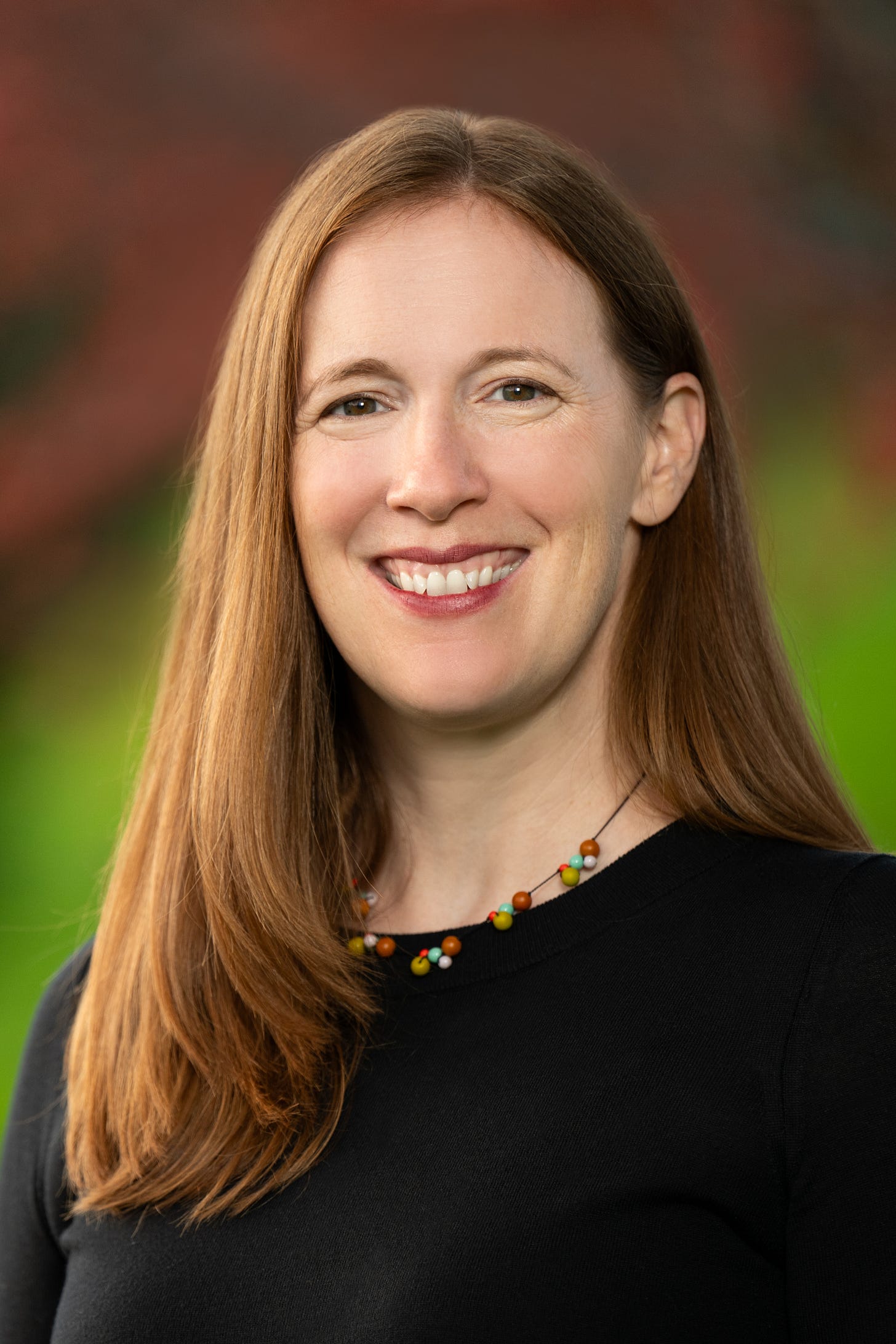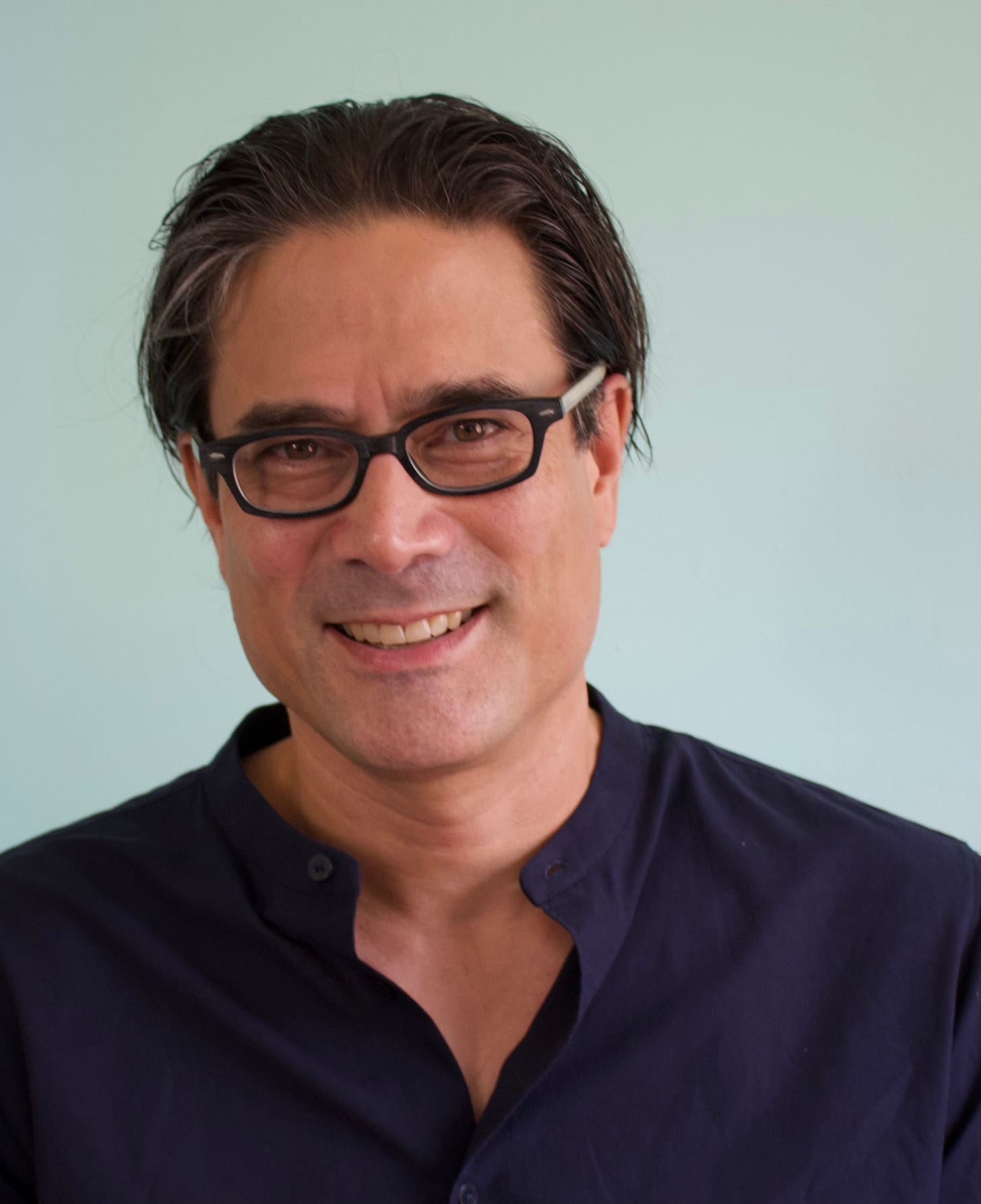How We Found Our Callings
While all definitions of calling share in common the notion that work becomes meaningful within a person’s life, they differ on whether the source of the calling is internal, based on one’s own values, needs, and preferences, or external, based on either a calling from a higher power, a ‘transcendent summons,’ or a sense of fulfilling one’s destiny. Our own academic work together – which began with research on how the work of 9/11 victims was seen in the eyes of their close relations, and which has led to the publication of two books and several scholarly papers – feels secular in origin. We were both called to academia within a year of 9/11, when we were both living and working in New York City as management consultants, and although the call came from both a world in need of repair and from inside of us, it did not in our experience come from on high.
Religious and Secular Callings in the Financial Capital of the World
The first name on the New York City Medical Examiner’s list of casualties of the September 11, 2001 terrorist attacks is that of Father Mychal Judge. He died carrying out his calling amid danger, praying to God over victims when he was killed by falling debris. Many people who died that day in a variety of uniforms were characterized as having lived out their callings, according to research we conducted. Most obviously, included are first responders like Jonathan Ielpi, a firefighter who followed his father into a profession in which he was ‘more concerned about others than he was about himself,’ Whether or not those callings were equally heroic, their origins were not always overtly religious.
Some callings sounded decidedly secular in origin, such as those of trader Frank Garfi, who ‘found a job that suited him precisely…fast-paced, demanding and as power-filled as an extreme sport,’ and trader Atsushi Shiratori, who was ‘so obsessed with the stock market that he once spent a two-week vacation in a day-trading salon. Sheryl Rosenbaum, who had known since her childhood visits to her father’s accounting office that ‘this was what she wanted to do,’ continued while she raised two young children of her own.
The History of Religious Callings
The notion of work as a calling has religious origins. As fellow management scholars Stuart Bunderson and Jeff Thompson detail in one of the foundational academic studies of calling toward work, the Protestant Reformation – and specifically the writings of Martin Luther – witnessed the transition of ‘calling’ from a narrow association with clergy work to a broader association with potentially any type of work. The important part was performing one’s work diligently and faithfully, laying the foundation for Max Weber’s notion of the Protestant Work Ethic.
This historical period also marked the culmination of a gradual transition of perceptions of work ‘from curse to calling,’ in the words of philosopher Joanne Ciulla. In Ancient Greece, work – especially manual labor – was seen as drudgery, punishment, and a distraction from one’s main goal of living a good life which was fully experienced in the life of the mind and certain types of leisure pursuits. When work becomes a calling, it becomes not a means to an end, but a meaningful end unto itself, a way to make a unique contribution to the world. The religious view of calling still has purchase in today’s conversations, in both scholarly writings and in the popular press. However, a different view has also emerged more recently that takes this same spirit into an explicitly non-religious context.
The Rise of Calling as a Secular (and Managerial) Concept
In another study, Thompson and Bunderson suggest that religious callings are typically ‘outside-in,’ emphasizing ‘destiny and duty’ and anchored in ‘societal obligations or an external summons.’ They contrast them with secular conceptualizations of calling that are typically ‘inside-out,’ emphasizing ‘passion and self-fulfillment’ and anchored in ‘internal preferences.’ Proponents of the former may express skepticism about whether the latter constitute ‘true’ callings. Proponents of the latter may doubt whether duty absent the passion to carry it out is sufficient to constitute a calling. Proponents of both tend to recognize that the best callings are those in which one feels to called in one’s heart to do what one is called by the world to do – or, in the words of theologian Frederick Buechner, ‘where your deep hunger and the world’s deep gladness meet.’
By the mid-1970s, when the field of management and organizational behavior was gaining traction as an academic discipline, scholars and other writers were increasingly considering work as a calling in a non-religious sense. For example, Studs Terkel’s famous compendium of interviews, Working, had a section titled, ‘In Search of a Calling’ that featured an editor, an industrial designer, and a nun-turned-massage therapist.
Jobs, Careers, and Callings
The presence of calling in management research – where we first encountered it – originated with a book by Robert Bellah and colleagues, Habits of the Heart. This book was not about callings or even work – the section on work was just over five pages long, the same length as a section on ‘leaving church’ – but rather about understanding how Americans’ private lives contributed to or detracted from their civic engagement. Yet, the writings about work proved to have a profound and outsized impact in codifying how ordinary people relate to their work. Based on interviews, the authors distinguished between work as a job or a means to make money, a career or a means to climb a career ladder, or a calling where work is a meaningful end in itself and ‘morally inseparable from [a person’s] life.’
These categories were further popularized and disseminated when they became the subject of study within organizational psychology by Amy Wrzesniewski and colleagues as one of three work orientations. In a pioneering study, Wrzesniewski found that, compared to a job or career orientation, employees who viewed their work as a calling reported greater satisfaction with work and with life and missed fewer days of work. As in Martin Luther’s view, any work could be viewed as a calling by the person holding it – even seemingly low-paid, low-status, and/or ‘dirty work,’ from hospital cleaners to zookeepers to administrative assistants. As a psychological construct, work orientation held that two people with the same position in an organization could come to view their jobs in wildly different ways: one a job, the other a calling.
What Do We Know Today?
Callings Can Be Sacred And/Or Secular
Academic research on work as a calling has exploded in the past two decades, which almost exactly mirrors a focus in the popular press on finding one’s calling through work. Reviews of calling research are quick to note the dual (if not dueling) perspectives on whether callings are sacred or secular. The neoclassical view of calling preferred by Bunderson and Thompson aims to build directly on the classical, religious view put forth by Luther and later Weber, defining calling as ‘that place in the occupational division of labor in society that one feels destined to fill by virtue of particular gifts, talents, and/or idiosyncratic life opportunities.’ The modern view, articulated by Dobrow and Tosti-Kharas, defines calling as ‘a consuming, meaningful passion people experience toward a domain, such as work.’
Both Kinds of Calling are Paths to a ‘Good Life’
A recent meta-analysis, of which Jen was a coauthor, examined more than 200 empirical studies of calling over the past 20 years, finding that experiencing a strong calling toward one’s work was related to a sense that one’s life was good. Whether a function of our work-centered modern culture, or of some jobs becoming objectively ‘better’ in post-industrial society, work is no longer necessarily a curse. The meta-analysis authors then looked at whether the type of calling, internal/modern or external/neoclassical, related to different types of well-being, hedonic (happiness or pleasure) or eudaimonic (meaningfulness, purpose, and self-realization). Both internal and external callings related to both types of well-being; however, internal callings were more strongly related to hedonic well-being, while external callings were more related to eudaimonic well-being.
What Does This Mean for Workers?
Callings Have Great Benefits…
In any case, possibly because we spend so much of our waking time at work, feeling that work has positive meaning has the potential to enhance our own and others’ flourishing. This is especially so with eudaimonic well-being, which can be supported by callings whether they are religious or secular in origin.
…And Can Come at Great Costs
Yet, the picture of how callings contribute to our lives is complicated, because they often demand sacrifices that can have deleterious effects on our well-being. The zookeeper study, which employed a neoclassical lens, portrayed calling as ‘a painfully double-edged sword.’ On one hand, a sense of calling elevated the importance and meaningfulness of work in subjects’ lives; on the other hand, it required sacrifices in the form of pay, long hours, and even social esteem. Further research supports that, regardless of whether callings are seen as secular or religious, they are intensely-felt and may involve a host of irrational behavior, from over-estimating one’s ability at work to ignoring the advice of trusted mentors to sacrificing money. A study of church ministers found that those with strongest callings had the hardest time disengaging from work at the end of the day, which in turn negatively affected their sleep quality and their vigor the next morning.
Callings are Worth Pursuing…
All of this is to say that, if we are fortunate enough to have a choice in the matter, we should choose wisely about whether to pursue work as a calling and which callings are worth pursuing. We should be realistic about what to expect of a calling, because even people who love their work may not be happy about the sacrifices and demands it requires every day. The cliché that if you ‘do what you love and you’ll never work a day in your life’ is often false, as anyone who has so much passion for their work can attest when the lines between their personal and professional lives blur to the point that they cannot escape work. We should also be mindful about whether some callings are ‘better’ than others. In our 9/11 research, which was based on close relations’ idealized reflections of how they wished their loved ones’ lives to have been, we found not only that a disproportionate share of victims were depicted as having worked at a calling but also that those callings which emphasized helping others and cultivating relationships with them were particularly admired. In those portraits of victims’ lives, their close relations found reasons for why even the most mundane or low status work – including that of receptionists and security guards and window washers – might have been worth loving.
…But Are Not a Panacea
As university professors, we counsel students not to feel undue pressure to ‘find their callings,’ especially as a surefire path to a perfect life. We teach them that some people are born knowing exactly what they were called to do and others search their entire lives in vain for a calling. They can’t control which one they might be, but it is within their control to carefully consider what pursuits are worth undertaking in a life worth living.

Jennifer Tosti-Kharas is the Camilla Latino Spinelli Endowed Term Chair and Professor of Management at Babson College.

Christopher Wong Michaelson is the Barbara and David A. Koch Endowed Chair in Business Ethics and Academic Director of the Melrose and The Toro Company Center for Principled Leadership at the University of St. Thomas and on the Business and Society faculty at NYU’s Stern School of Business.
Jen and Christopher are the authors of Is Your Work Worth It? How to Think About Meaningful Work (New York: Public Affairs, 2024) and The Meaning and Purpose of Work: An Interdisciplinary Framework for Considering What Work is For (London: Routledge, 2025).

